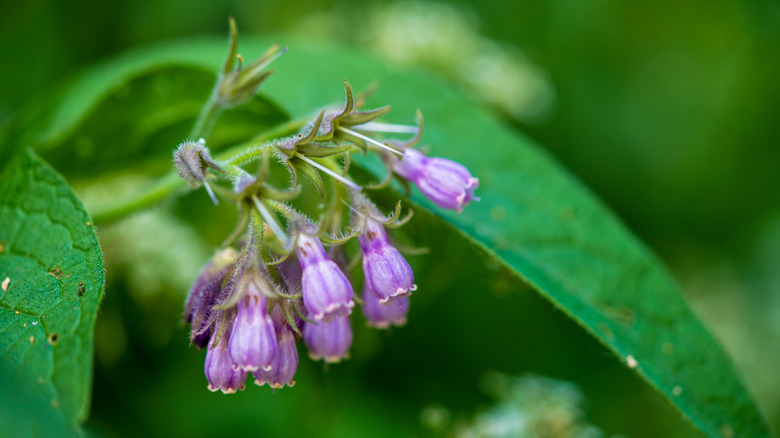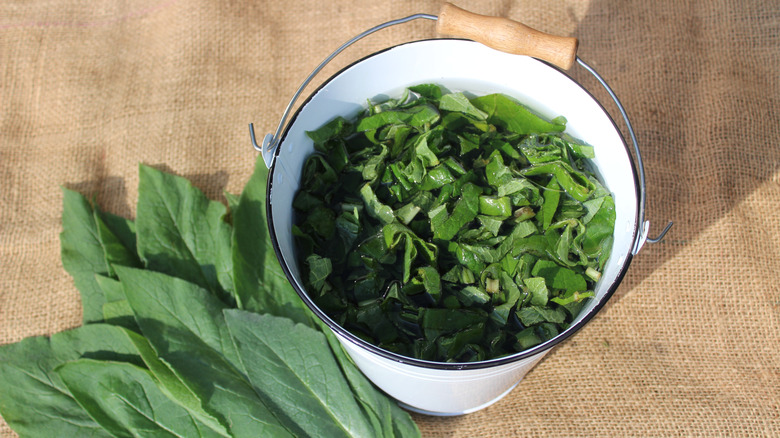The Flowering Perennial That Makes Garden Soil Healthier
Healthy garden soil equals healthy plants, lawns, and garden produce. But even the best soil can use a helping hand from time to time. One tip for growing a healthy garden is to use fertilizer, but these products can be full of harsh chemicals. If you're looking for a natural alternative to make organic fertilizer with, you don't need to look much further than this hardy perennial. Comfrey (Symphytum officinale) provides excellent ground coverage, with beautiful tubular flowers in mid spring and summer. But its leaves can also be used to make an organic fertilizer that will do wonders for your soil quality.
Comfrey roots deeply in the soil, which gives it the ability to draw nutrients that are often inaccessible to other, more shallow-growing plants. This, in turn, means that the comfrey is able to spread those nutrients throughout its entire structure, leading to a hardy plant that provides excellent ground cover. It's also attractive to insects and bees, helping with biodiversity and ensuring pollen and nectar from late May until Autumn. But beyond its presence in the garden, comfrey has other uses, one of which is making a fantastic fertilizer for your garden.
How to make a comfrey fertilizer
Are organic fertilizers right for you? If the answer is yes, then making your own comfrey fertilizer could be the key to your soil's health. A liquid fertilizer is a great way to feed your plants, and you can't get much better than a DIY fertilizer tea that will help nourish your garden. A good fertilizer contains all the nutrients a plant needs to thrive, and comfrey contains all three of the major nutrients (potassium, nitrogen and phosphorous), making it a fantastic booster for other plants in the garden.
Be warned though that making a comfrey fertilizer can be smelly! With the leaves taking around a month to rot down sufficiently, placing them in a bucket with a lid is essential unless you have an extremely weak sense of smell. Wear gloves to pick leaves, and be sure to cut them up for faster steeping. Weighing the leaves down with something heavy such as a brick will also help to speed things up. Once a month has passed, you can strain off the liquid and dilute it at a 1 to 20 ratio with water. Comfrey also makes an excellent mulch for the garden, and it's worth adding it to your compost heap on a regular basis to help spread those nutrients back into the soil.

